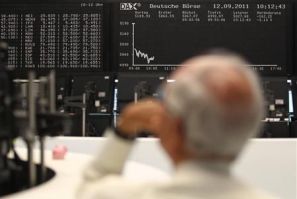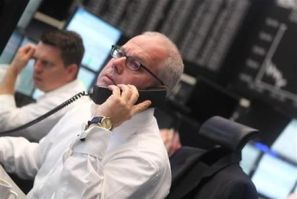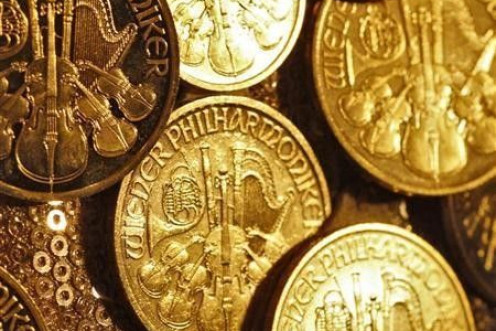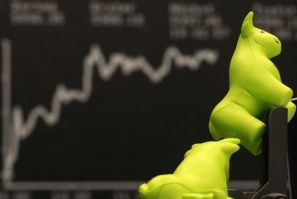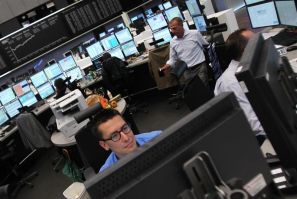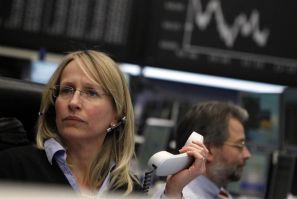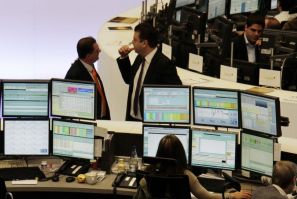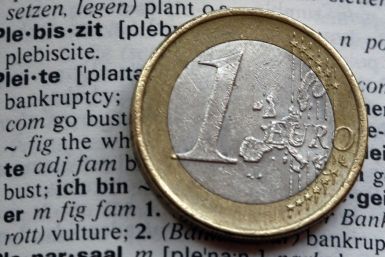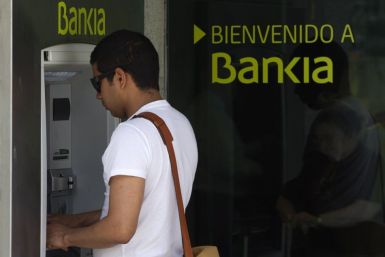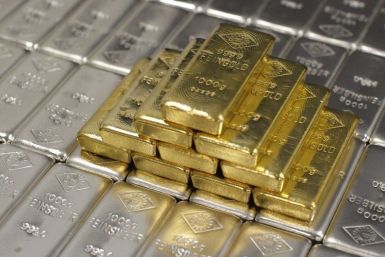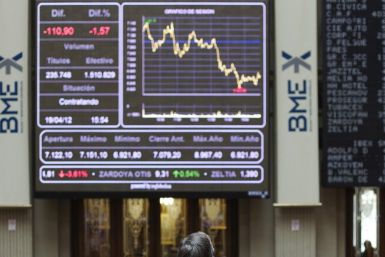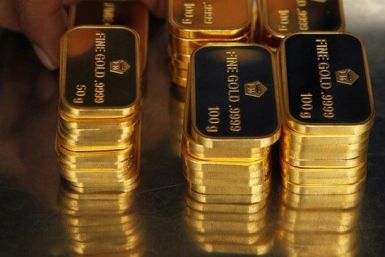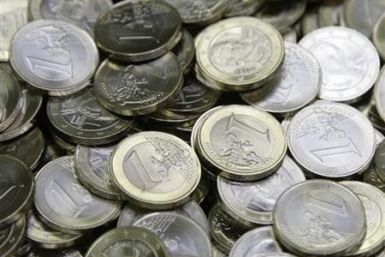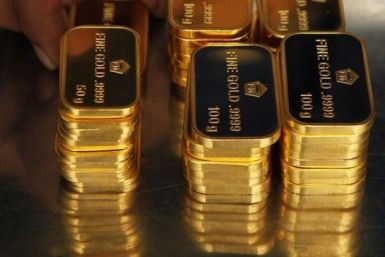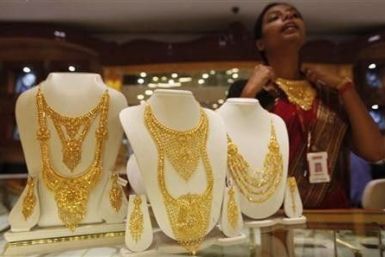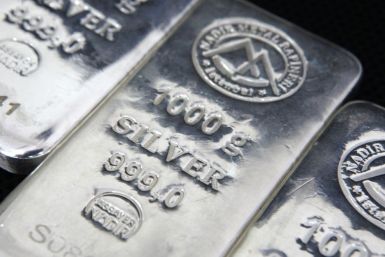Greeks woke this morning to a confusing result that, while tilting ever so slightly toward the pro-bailout parties, does little to ease the threat of a devastating exit from the euro zone that still hangs over Athens.
Commodity prices posted a brief rally on Monday after a pro-austerity party got the most votes in Greece's weekend elections, but the market's upswing fizzled almost as soon as it began, confounding traders who might have expected developments to lift risky assets for at least a few of sessions.
Britain's goods trade deficit unexpectedly widened in April as exports plunged, raising the threat of a third quarter of economic contraction and adding urgency to new measures to foster growth as trading partners in the euro zone weaken.
Investors on Wednesday eagerly snatched up a new two-year German bond with a zero-percent coupon, meaning investors were willing to pay to loan money to Europe's strongest economy when expected inflation is factored in. The yield ended at 0.07 percent.
The European Central Bank in Frankfurt said Wednesday it is temporarily cutting off liquidity to Greek banks that are inadequately capitalized, pushing the onus of emergency assistance on the Greek central bank.
Germany's benchmark 10-year bond yield approached Wednesday the record euro-era low it struck on Monday, as investors reduced risk exposure as Greece seemed to be edging closer to leaving the currency bloc. The yield fell to 1.44 percent, just over the 1.43 it struck just two days ago, before rebounding to 1.5 in afternoon trading.
Gold prices fell to a 4-1/2-month low on Monday, hit by concerns about a worsening debt crisis in the euro zone following political deadlock in Greece which fuelled risk aversion and put pressure on the euro.
Gold fell for a second day on Tuesday, under pressure from the slide in the euro on the back of political uncertainty in Greece and a change of president in France, while Chinese import figures did little to offset the impact of the weaker currency.
Gold eased on Thursday, under pressure from a decline in the euro ahead of a rate decision from the European Central Bank, while concerns about Spain's ability to finance itself simmered after yields shot up at a debt auction.
A steady drip of bad news swelled into a river of losses for European equities Monday, as stock markets across the continent -- some already battered in previous weeks -- experienced significant declines.
A steady drip of bad news swelled into a river of losses for European equities Monday, as stock markets across the continent -- some already battered in previous weeks -- experienced significant declines.
Gold rose above $1,645 an ounce on Friday as a better-than-expected German business sentiment survey lifted the euro versus the dollar, but trading was light as investors awaited further news on the euro zone crisis and U.S. monetary policy.
Gold rose above $1,645 an ounce on Friday as a better-than-expected German business sentiment survey lifted the euro versus the dollar, but trading was light as investors awaited further news on the euro zone crisis and U.S. monetary policy.
Gold prices steadied around two-week highs on Tuesday after posting their biggest one-day rise since late January in the previous session, boosted by expectations that U.S. interest rates will stay lower for longer and by gains in the euro.
Developments in the two weeks since the credit event confirmed that the world's first test of using credit default swaps as protection involving sovereign debt turned out fairly well. But broader concerns abound, such as the fragile Greek economy and what could be in store for fellow euro zone members Spain and Portugal.
Early bids at an auction to decide the payout due to Greek bondholders who are insured against default showed investors fear for the country's financial future even after a debt restructuring and aid packages.
Gold edged up on Monday, aided in part by evidence of investor and central bank demand, after having posted its largest weekly fall last week in three months, although greater optimism in the markets over global growth could temper gains in the longer-run.
Gold steadied above two-month lows on Monday, following its largest weekly fall last week in three months, as evidence of investor and central bank demand in recent weeks helped offset the negative impact of a weaker euro.
Gold prices fell more than 1 percent in Europe on Tuesday, pushing through support at $1,690 an ounce, as jitters over whether private creditors will agree to a Greek bond swap deal and wider euro zone growth pressured the euro versus the dollar.
European stock markets gained in early trade Wednesday ahead of second 3-year long-term refinancing operation (LTRO) by the European Central Bank.
Gold retreated on Friday, shrugging off gains in the euro and struggling to maintain traction after this week's already hefty price climb, as buyers favored assets seen as higher risk such as stocks and industrial commodities.
Gold rose for a second day on Tuesday, taking its cue from a brief rally in the euro after euro zone finance ministers struck a deal with Greece on its emergency funding, while silver shrugged off data that showed a steep drop in Chinese imports.



